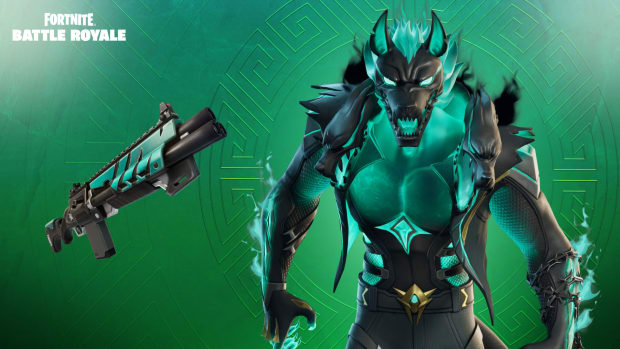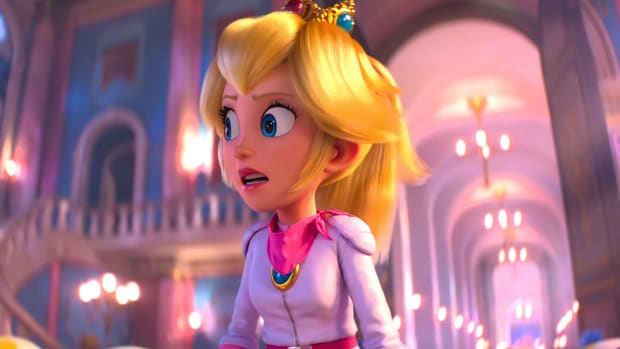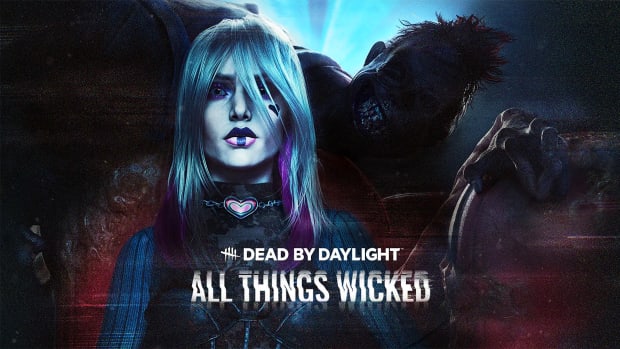
Aaryn Flynn interview – Nightingale, tree chopping, and magic

Aaryn Flynn and his game development team at Inflexion are bringing magic to a genre most people would associate with pickaxes and crafting benches. Best known for his time as General Manager at BioWare during its heyday. Flynn gave a talk at Reboot Develop Blue about how video games still have so much potential to do things in new and interesting ways.
“One of my heroes in all of the creative field, Orson Welles, had this amazing interview at the BBC,” Flynn explained during his talk. “And what he says is that the only reason he was successful with Citizen Kane was because he was ignorant of all the things you couldn't do in filmmaking at the time.”
He likened this to his time at BioWare when it had ambitions to create the Mass Effect trilogy – a series of games where your choices in one title would impact the world of the next entry. It had never been done before. BioWare did it.
Originally, publisher EA didn’t even want BioWare to announce a trilogy. Again, BioWare did it, even though it wasn’t the done thing to commit to a series of games when you don’t even know if the first one will be popular.
Eventually, even EA started to believe the hype (once it saw those sales numbers), prompting the publisher to coin the term “BioWare magic” – a reference for how the studio’s games would come together, as if by magic, in the final stretch.
Of course, that’s just how video game development is. Games are usually a hot mess while they’re being cobbled together from dust, dreams, and surgical tape, right up until the point that they’re not. BioWare wasn’t magic. It couldn’t just click its fingers at the end of a long project to ensure it made a good game.
Flynn physically grimaces when I bring up the term.
“To my recollection, I think EA offered the term out of respect and appreciation for some of the quality that was made there,” he says. “My understanding of it was just a lot of hard work, and Ray [Muzyka] and Greg [Zeschuk] being excellent at continuing to get us more time on the development until we got it exactly right.”
It also came down to vision. Flynn says the best games at BioWare were the ones that stuck to the objectives on their design documents, and the ones that suffered were the games that strayed too far from their original goals.
The issues with Mass Effect: Andromeda and BioWare’s switch to the Frostbite engine have been widely reported, but Flynn gives some insight into how that switch impacted the vision.
“The vision did get modified,” he says. “And that was largely out of pressure to ship and to get things out there. One of the biggest challenges we had with Frostbite on that game – and we had this issue relatively late in development, with a year to go – is we were waiting on some technical improvements to come in for the last elements of our game. And then the Frostbite team ended up having to support [the] sports [teams] much more because sports teams went through that [change] as well. So we lost that support and had to cut some of those things.
“And honestly, it's fair to say that if you read what Starfield is about, Andromeda had similar ambitions – plans to explore and actually travel in a spaceship. We just couldn't pull it all off, and so the vision ended up being less than what we were hoping to do. We should have been more conservative.”
Flynn’s next game is a pretty big departure from his work at BioWare. A survival and crafting game infused with magic and boomsticks, it’s still focused on player choice and expression but that expression is being delivered in a different way. During his talk, Flynn spoke about his ambitions to create a new place for people to spend time, with the pandemic serving as a reminder that we need more social spaces to bring people together.
That materializes in-game in the form of portals – magical gateways that players can place to hop between their world and the worlds of their friends. Everyone’s world will be different because of how they’ve progressed and what they’ve built, but you only have to step through a portal to take a peek into another plane.
This mechanic has always been a part of the vision. Originally, Inflexion was partnered with Improbable, which promised tech that could support hundreds of players inhabiting the same spaces together. While Nightingale has reduced the number of people who can share a world now it’s split with the tech company, these gateways into other players’ worlds made the jump intact.
Of course, this doesn’t mean the company isn’t willing to listen to feedback. This is a multiplayer game, so Flynn and the team are working with the community to ensure it remains competitive in a relatively bloated genre.
“We've had several closed alpha play tests, and they've been really, really helpful to pick our priorities,” Flynn says. “We haven't changed the vision, but it's a new way to work for a lot of us. We've come from building big RPGs where you work on them behind closed doors, and then you reveal them, you do press events, but people rarely get hands-on. So yeah, this is a really fascinating way to work.”
Flynn says that this new method of working has already had certain benefits. One bit of feedback kept cropping up during playtesting, and the team was able to switch focus and make sure it was ready for the Early Access launch.
“Obviously, if someone says, ‘Oh, I wish there were pirate ships in our game’ – maybe one day, but we can't do that right now,” Flynn laughs. “But at the same time, people will say, ‘I want to be able to hold the light while I'm using a weapon.’ So now we're doing it. And we could have shipped without that – a lot of games do that in Early Access – but we just missed it.”
The medium size of the team allows them to stay on their toes and implement things that make the end experience better, but without compromising on the original goals. This also extends to outside influences. When Inflexion saw what Sons of the Forest was doing with its tree-chopping tech, the team went back to improve their own tree felling. The bar had been raised (the tree had been chopped?) and they wanted to meet it.
“Tree chopping is such an important part of a survival crafting game,” Flynn explains. “You've got Ark’s version, where you can punch a tree, and Valheim does the same, and then Sons of the Forest came along and it's beautiful – it’s an incredibly elegant, beautiful bit of tech art. So we definitely went back to the drawing board after that and thought long and hard about how to do it better. So hopefully we can get as good or close.”
From the little snippets I’ve seen, Nightingale is shaping up to be one of the more interesting survival games out there, with a rich, soupy atmosphere and a fleshed-out world akin to Subnautica. What sets Nightingale apart from other games of its type – beyond the gaslamp setting and the 1889-era weaponry – is magic. Not BioWare magic – actual magic. Playing as a Realmwalker, your ultimate goal is to get back to Nightingale, the city of the arcane.
Early on in your adventure, you’ll be rubbing stones together to make fire and creating items using primitive tools. But that endgame goal ever looms. Once you reach it, you’ll unlock new magical abilities that change the way you interact with the world. For the most powerful players – those who have completed the ultimate goal – starting a fire could be a simple case of clicking their fingers.







